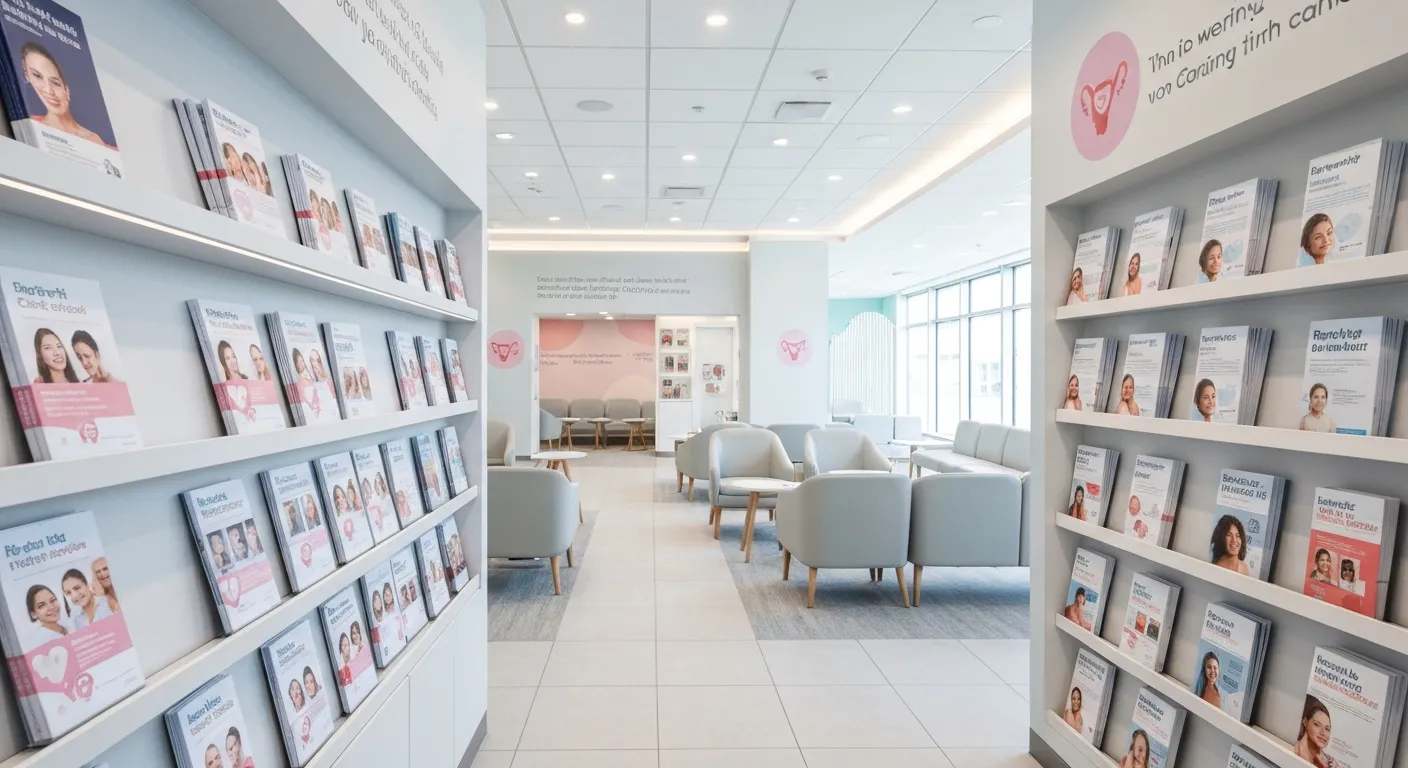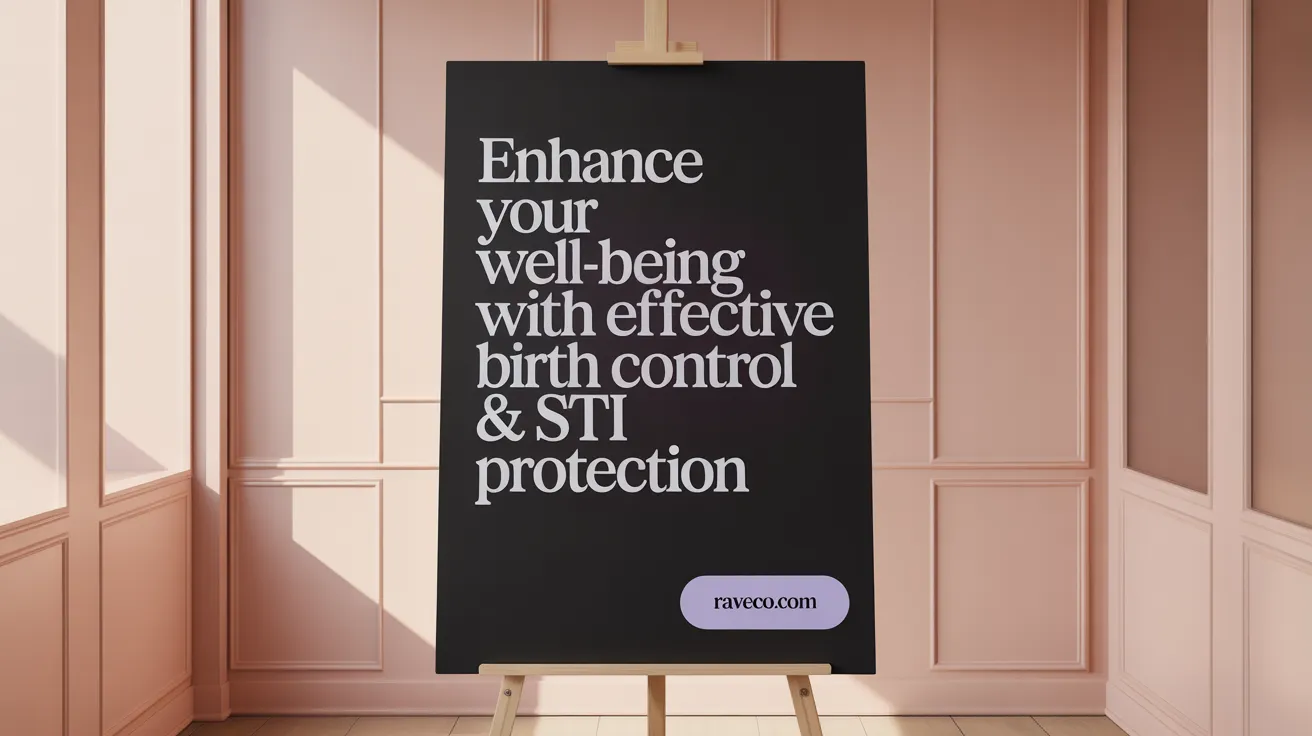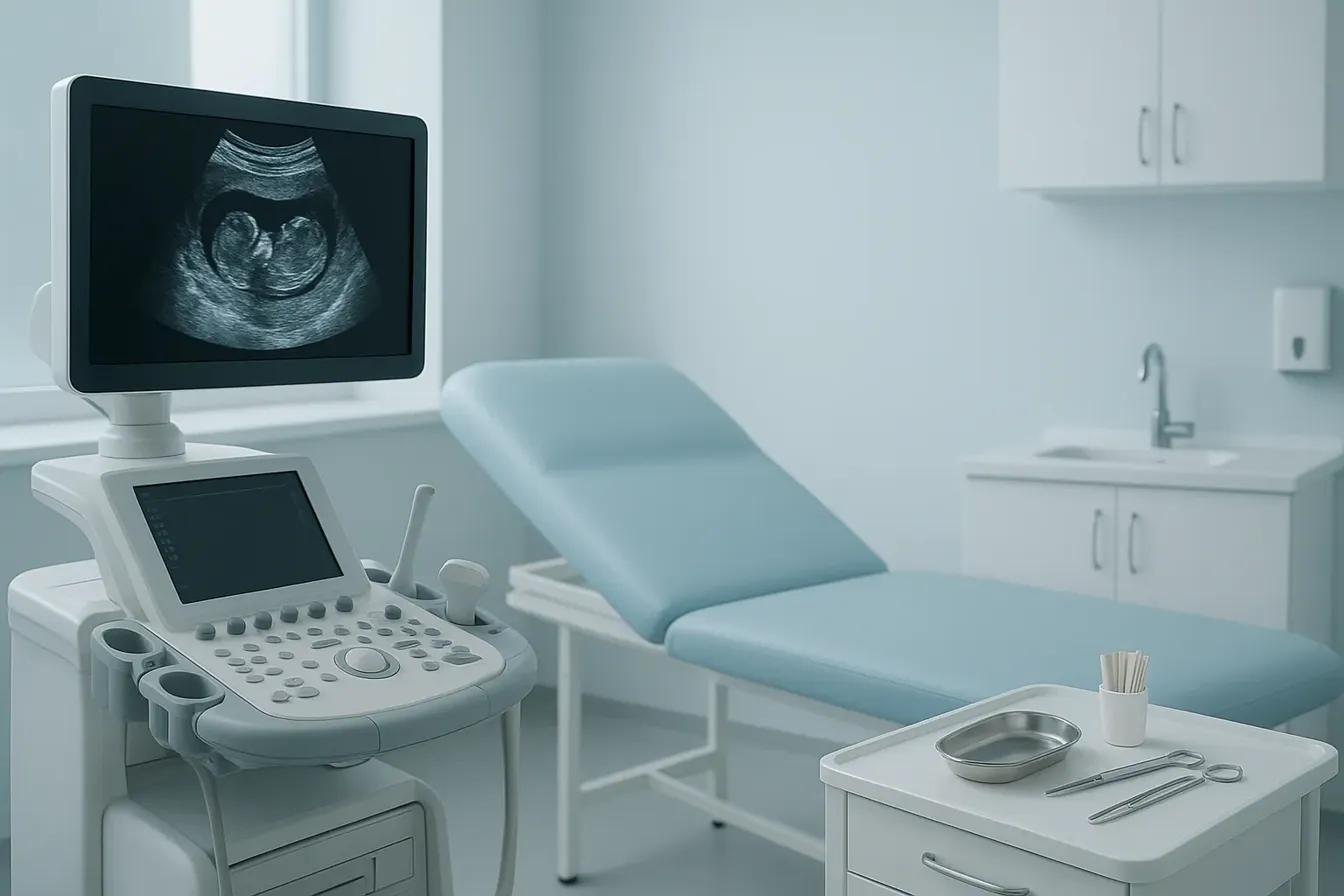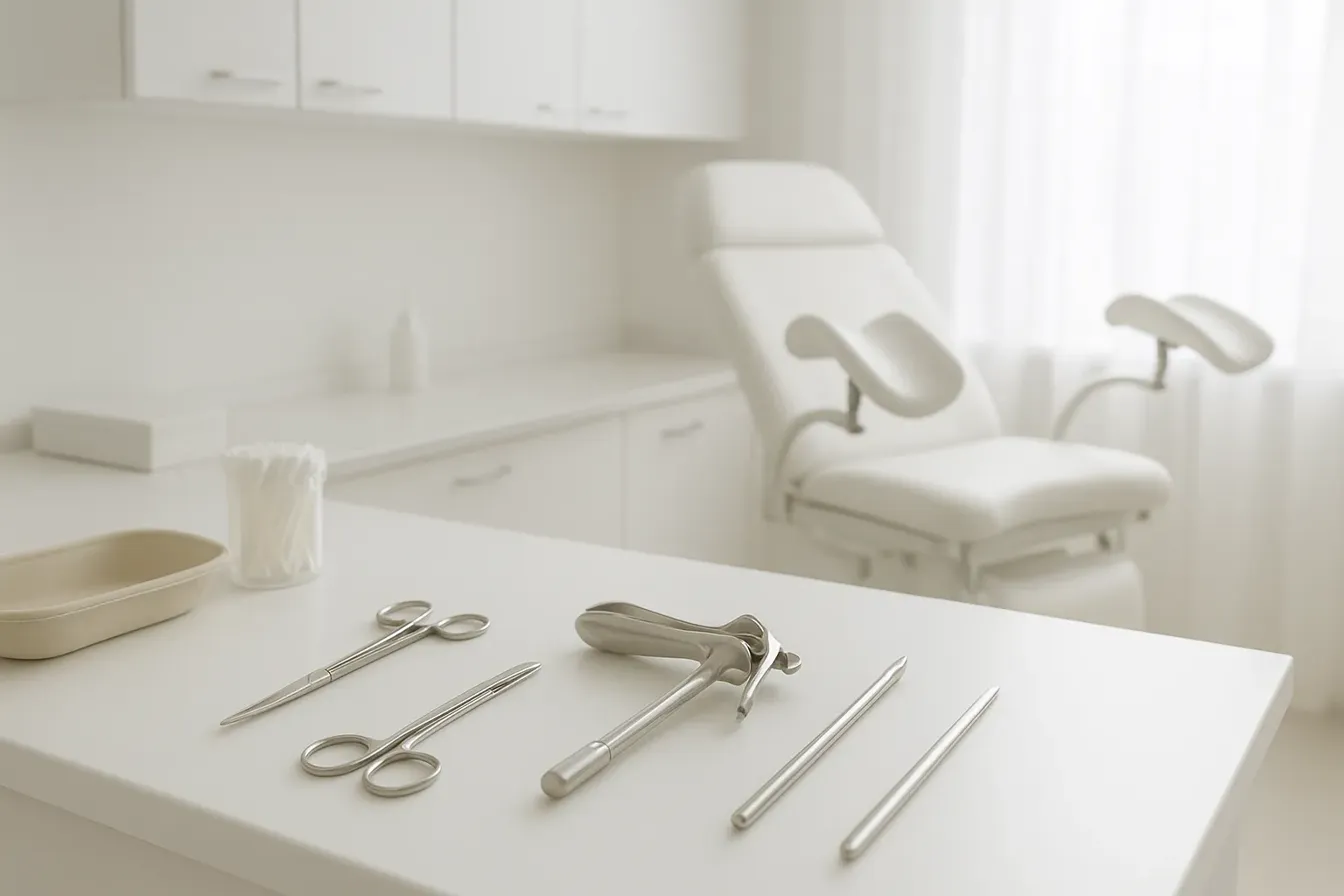Empowering Choices: The Essentials of Birth Control Counseling

Understanding Birth Control and Family Planning
Definition of Birth Control
Birth control refers to any medicine, device, or method used to prevent pregnancy. It encompasses a variety of options such as hormonal pills, intrauterine devices (IUDs), implants, barrier methods like condoms, natural family planning techniques, and permanent surgical procedures.
Purpose of Family Planning
Family planning allows individuals to decide the number and spacing of their children, supporting reproductive rights and health. Access to diverse contraceptive methods helps prevent unintended pregnancies, promotes maternal and child health, and empowers women by facilitating informed choices.
Importance of Personalized Contraceptive Advice
Choosing an appropriate birth control method depends on individual health, lifestyle, hormone preferences, and future reproductive goals. Personalized guidance from healthcare providers, like those in Queens, NY, ensures that women select safe, effective contraception tailored to their needs, improving satisfaction and consistent use.
Comprehensive Obstetrics and Gynecology Services in Queens, NY

What comprehensive obstetrics and gynecology services does a woman-led healthcare provider offer?
A woman-led obstetrics and gynecology provider in Queens, NY delivers a broad spectrum of personalized healthcare tailored to women at all life stages. Their services include essential prenatal care, helping expectant mothers through each trimester with guidance on nutrition, lifestyle, and fetal development.
Family planning is a core focus, offering counseling on various birth control methods—from long-acting reversible contraceptives such as IUDs and implants to hormonal and barrier methods—ensuring choices reflect individual health profiles and reproductive goals.
Specialized care is available for high-risk pregnancies, including maternal-fetal medicine consultations for conditions like diabetes or infectious diseases. These providers also conduct comprehensive reproductive health screenings, including Pap smears, colposcopies, and cancer prevention, fostering early detection of gynecologic issues.
Advanced diagnostics, such as prenatal ultrasounds and reproductive genetic counseling, support monitoring and managing pregnancy health effectively. The approach is inclusive, accommodating the unique needs of diverse populations, including LGBTQ+ individuals.
They also offer minimally invasive procedures in gynecology to treat various conditions, enhancing recovery and reducing intervention risks (minimally invasive procedures in gynecology).
Throughout their care, providers emphasize accessibility, offering virtual visits and prompt diagnosis, contributing to comprehensive, compassionate, and patient-centered women's health services available locally in Queens.
Personalizing Advanced Women's Health Care for Optimal Family Planning

How does a woman-led healthcare provider personalize advanced women's health care?
A woman-led healthcare provider focuses on a patient-centered approach that recognizes each woman's unique needs, experiences, and health goals. This approach begins with a comprehensive evaluation of the patient's medical history and lifestyle factors—including reproductive plans, health conditions, and personal preferences—which guides the creation of individualized treatment plans.
These providers integrate the latest medical advancements and technology, such as minimally invasive procedures in gynecology, ultrasonography, and up-to-date contraceptive options, to offer nuanced care tailored to each woman. They emphasize informed decision-making, ensuring patients are actively involved in their health choices and feel respected throughout their care journey.
Such personalized care enhances patient satisfaction, compliance, and outcomes by addressing physical, emotional, and cultural factors. It also supports effective family planning by aligning contraception methods and treatments with a woman’s lifestyle and future reproductive intentions, particularly in dynamic communities like Queens, NY.
In summary, personalized women’s health care delivered by woman-led teams combines empathy, expertise, and innovation to optimize reproductive health and empower women to make autonomous health decisions.
Choosing the Right Birth Control Method: Factors and Options

What factors should be considered when choosing a birth control method?
Choosing an effective birth control method involves evaluating several personal factors. Lifestyle plays a large role, including frequency of sexual activity and preferences regarding hormone use. Health history such as existing medical conditions or sensitivity to hormones also guides the choice. Women planning to conceive in the near future or those with irregular menstrual cycles should consult healthcare providers for tailored advice. Future family plans strongly influence whether to opt for temporary or permanent methods, and understanding potential side effects is imperative for an informed decision.
What are the available hormonal and non-hormonal contraceptive methods?
Hormonal methods include pills, patches, vaginal rings, implants, injections, and hormonal intrauterine devices (IUDs). These methods regulate ovulation and can also relieve menstrual symptoms. Non-hormonal options include copper IUDs, barrier methods like male and female condoms, diaphragms, cervical caps, and fertility awareness-based methods such as tracking ovulation signs. Condoms uniquely offer protection against sexually transmitted infections (STIs) alongside pregnancy prevention.
How effective and maintenance-friendly are long-acting reversible contraceptives (LARCs)?
LARCs like IUDs and implants are highly effective, with pregnancy rates below 1% per year. Hormonal IUDs can last 3 to 8 years, and copper IUDs up to 10 or 12 years. These methods require minimal user maintenance after placement and fertility typically returns immediately following removal. Their long duration and reliability make LARCs suitable for women seeking hassle-free, reversible contraception. For more information, see long-acting reversible contraceptives (LARCs).
What permanent sterilization options are available?
Permanent methods include tubal ligation and salpingectomy for women and vasectomy for men. Tubal ligation is a surgical procedure intended for women certain they do not want future pregnancies. Vasectomy is a simpler outpatient procedure under local anesthesia, also highly effective and permanent. Although sometimes reversible, these methods should be considered permanent and chosen with care.
Local clinics and hospitals in Queens, NY, such as Ideal Gynecology and NYC Health + Hospitals/Queens provide personalized counseling to help women select the most suitable birth control method based on their unique health status and life plans.
Natural Family Planning and Fertility Awareness: An Alternative Approach

Types of Natural Family Planning
Natural family planning (NFP) mainly includes fertility awareness methods and the lactational amenorrhea method. Fertility awareness involves tracking menstrual cycle indicators such as basal body temperature, cervical mucus, and cycle dates to identify fertile days. The lactational amenorrhea method is effective during the first six months postpartum when specific breastfeeding patterns are followed.
Effectiveness with Perfect and Typical Use
When used perfectly, fertility awareness methods can be 91% to 99% effective at preventing pregnancy. However, typical use reduces effectiveness to about 76%, mainly due to inconsistent tracking or timing. The lactational amenorrhea method offers over 99% effectiveness when followed correctly but slightly less (around 98%) with inconsistent application.
Considerations and Suitability
NFP does not protect against sexually transmitted infections, so additional protection like condoms is recommended when STI prevention is needed. These methods require dedication to daily monitoring and are best suited for women with regular menstrual cycles or those who are exclusively breastfeeding. Women with health conditions or irregular cycles may find NFP less reliable.
Need for Professional Guidance
For successful use, professional guidance from healthcare providers or trained fertility awareness counselors is advised. In Queens, NY, women can consult with specialists to learn proper techniques, ensure accurate tracking, and receive personalized support tailored to their reproductive goals. See fertility awareness support in Queens, NY.
Maximizing the Benefits of Birth Control: Health, Convenience, and Protection

What health benefits beyond pregnancy prevention can birth control provide?
Birth control methods offer several health advantages beyond preventing pregnancy. Hormonal options like the pill, patch, and ring can regulate menstrual cycles, reducing heavy or irregular periods and alleviating painful cramps. Additionally, these methods may help manage conditions such as acne, fibroids, endometriosis, and PCOS by balancing hormones and decreasing symptoms. Many women find that hormonal contraceptives improve overall menstrual health and quality of life.
How can birth control protect against sexually transmitted infections (STIs)?
While most hormonal and long-acting methods do not prevent STIs, barrier methods such as male and female condoms, diaphragms, and cervical caps provide a physical blockage that reduces the risk of infection. Condoms are the only widely available contraceptive method that also protect against STIs including HIV. Their dual protection makes them an essential option for sexually active women seeking safer sex and disease prevention, especially when used consistently and correctly.
What options are available for emergency contraception, and how soon should they be used?
Emergency contraception is a safety net after unprotected sex or contraception failure. Options include emergency pills with active ingredients like ulipristal (ella®) or levonorgestrel, which are most effective when taken within 24 hours but remain useful up to 120 hours (5 days) later. The copper intrauterine device (IUD) offers an even more reliable option, preventing pregnancy if inserted within five days post-intercourse and providing long-term contraception afterward.
Why is education and counseling important for effective birth control use?
Personalized counseling with healthcare providers helps women select contraception methods that align with their health, lifestyle, and reproductive goals. Education ensures correct use, managing expectations, and understanding potential side effects. Providers in Queens, NY emphasize patient-centered care, supporting informed decisions and addressing concerns such as hormone sensitivity or future pregnancy plans. Access to counseling also improves consistent use, increases satisfaction, and optimizes contraceptive effectiveness.
This multidimensional approach to birth control enhances both physical health and quality of life, while safeguarding against unintended pregnancies and infections.
Empowering Informed Family Planning Decisions
The importance of consulting healthcare providers
Consulting a healthcare provider is essential when choosing a birth control method. Providers assess individual health history, lifestyle, and reproductive goals to recommend the safest and most effective options. Personalized advice ensures each woman’s unique needs are met, promoting better outcomes and satisfaction.
Access to diverse contraceptive options in Queens, NY
Queens offers a wide range of contraceptive choices, including hormonal methods (pills, patches, rings), long-acting reversible contraceptives (IUDs, implants), barrier methods (condoms, diaphragms), natural family planning, emergency contraception, and permanent sterilization. Many clinics and health centers provide low-cost or free services, enhancing accessibility.
Emphasis on informed, personalized choice and ongoing communication with providers
Women are encouraged to make autonomous, informed decisions about their reproductive health. Ongoing communication with healthcare providers supports adjustments to contraceptive methods as needed, management of side effects, and alignment with changing health or family planning goals. This patient-centered approach fosters empowerment and trust.





.png)